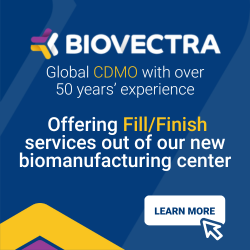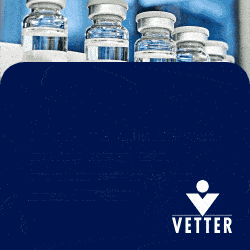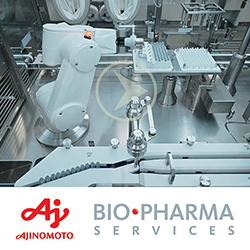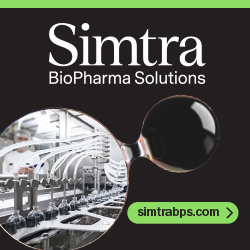12/13/2011
Abbott Laboratories Spends $400 Million on Development Deal
Abbott Laboratories and Reata Pharmaceuticals recently announced they have entered into a worldwide collaboration to jointly develop and commercialize Reata’s portfolio of second-generation oral antioxidant inflammation modulators (AIMs). The agreement is in addition to the partnership between the two companies announced in September 2010 in which Reata granted to Abbott exclusive rights to develop and commercialize its lead AIM compound, bardoxolone methyl, outside of the US, excluding certain Asian markets.
The collaboration is a global agreement and includes a large number of molecules in a broad range of therapeutic areas, including pulmonary, CNS disorders, and immunology. Abbott and Reata will equally share costs and profits for all new AIMs in all newly licensed indications except for rheumatoid arthritis and select other autoimmune diseases, in which Abbott will take 70% of costs and profits, and Reata will take 30%. The deal also includes a research agreement in which the companies will work together to discover new molecules that exhibit the same pharmacology as the AIMs already in Reata’s pipeline.
Abbott will make a one-time license payment of $400 million to Reata. The companies expect the first compound in this collaboration to enter into human clinical trials in 2012.
“We are excited to work with Abbott to develop this promising class of compounds,” said Reata CEO Warren Huff. “This deal helps Reata advance new molecules into clinical development in multiple important diseases and enables our company to build a global commercial presence.”
AIMs are potent activators of the transcription factor Nrf2. Activation of Nrf2 promotes the production of a wide range of antioxidant, detoxification, and anti-inflammatory genes. Activation of Nrf2 also inhibits NF-KB, a transcription factor that regulates many pro-inflammatory enzymes. Suppression of Nrf2 and activation of NF-KB have been associated with numerous chronic diseases, including multiple sclerosis, rheumatoid arthritis, chronic kidney disease, neurodegenerative disease, and COPD. Therefore, agents that activate Nrf2 and inhibit NF-KB may be beneficial in the treatment of these chronic diseases.
“This partnership allows Abbott to enhance its promising research pipeline across multiple therapeutic areas,” added John Leonard, MD, Senior Vice President, Pharmaceuticals, Research and Development, Abbott. “Accumulating data has established the potential for antioxidant inflammation modulators in neuroscience and immunology, and we look forward to expanding our knowledge through further research.”
Reata Pharmaceuticals, Inc. is the leader in discovering and developing novel, oral anti-inflammatory drugs that activate Nrf2, the primary regulator of cellular antioxidant and detoxification enzymes, and suppress NFkB, the primary regulator of inflammatory genes. Reata is developing these compounds called antioxidant inflammation modulators (AIMs) with the goal of one day making them available to patients suffering from a broad range of diseases associated with inflammation and oxidative stress. Reata plans to build a stand-alone, fully integrated pharmaceutical company with a worldwide medical, commercial, and regulatory presence.
Innovus Completes Reverse Merger Agreement With North Horizon
Innovus Pharmaceuticals, Inc., recently announced that FasTrack Pharmaceuticals, Inc. completed its previously announced merger agreement with North Horizon Inc., subsequent to which FasTrack was acquired by, and has become a wholly owned subsidiary of North Horizon. Effective December 2011, the combined entity began operating under the name of Innovus Pharma. Its common stock will continue to be quoted on the OTC Bulletin Board under the ticker NORHD until January 2012, after which time it will trade under the ticker INNV.
Pursuant to the terms of the merger agreement, the company also effected a 10:1 reverse split of its common stock outstanding, thereby bringing the total to 16,564,063 shares on a fully diluted basis. The FasTrack shareholders, convertible note holder and warrant holder, received approximately 15,238,938 shares or approximately 92% of the fully diluted shares outstanding.
“The closing of this transaction completes the first phase of the company’s overall growth strategy,” said Vivian Liu, President and CEO of FasTrack. “Our name change and listing as a publicly traded company will provide Innovus Pharma with increased visibility and greater access to the financial markets as we continue to build our pipeline going forward.”
Innovus Pharmaceuticals, Inc. is focused on developing and in-licensing revenue-generating therapeutic drug candidates. The company has the right to develop a number of therapeutic compounds utilizing Apricus Bioscience’s NexACT transdermal drug delivery technology. Initially, Innovus Pharma is concentrating on compounds requiring relatively short development timelines and minimal R&D investment, such as a potential NexACT-based topical treatment for male hair loss. Innovus Pharma also holds 50% of the net commercial rights to Apricus Bio’s PrevOnco, a lansoprazole-based Phase II/III Orphan Drug candidate for liver cancer. Additionally, Innovus Pharma’s proprietary OTC pipeline, consisting of therapies aimed at pain relief and bleeding of the gums, may offer near-term revenue opportunities.
Pharmacyclics Could Get Almost $1 Billion in Licensing Deal
Janssen Biotech, Inc., one of the Janssen Pharmaceutical Companies of Johnson & Johnson, recently announced it has executed an agreement with Pharmacyclics, Inc. to jointly develop and market the anti-cancer compound, PCI-32765. A number of Phase I and II studies with PCI-32765 are ongoing across a panel of B-cell malignancy disorders, including chronic lymphocytic leukemia, mantle cell lymphoma, and diffuse large B-cell lymphoma. Interim data were reported at the 2011 American Society of Clinical Oncology Annual Meeting, and oral presentations on two separate Phase II studies were presented at the upcoming American Society of Hematology Meeting in December, along with several other poster presentations.
“The agreement with Pharmacyclics is an opportunity to bring a new form of oral therapy to patients with B-cell malignancies,” said William N. Hait, MD, PhD, Global Therapeutic Head, Oncology, for Janssen. “PCI-32765 is an innovative compound, with broad applicability and the potential to help a large number of patients with B-cell malignancies.”
According to the terms of the agreement, the companies have entered into a worldwide 50/50 profit-loss agreement, sharing development and commercialization activities. Janssen has made an up-front payment of $150 million, which will be recorded in the fourth quarter, and will make additional payments based upon the achievement of certain development and regulatory milestones. This transaction is expected to have a dilutive impact to Johnson & Johnson’s 2011 earnings per share of approximately $0.04 to $0.05.
PCI-32765 is an orally active, small molecule inhibitor of Bruton’s tyrosine kinase (Btk), an essential element of the B-cell antigen receptor (BCR) signaling pathway. BCR signaling is a critical pathway required for tumor expansion and proliferation, and PCI-32765 exerts its anti-tumor function by blocking BCR signaling and thereby inducing cell death.
The Janssen Pharmaceutical Companies of Johnson & Johnson are dedicated to addressing and solving the most important unmet medical needs of our time, including oncology, immunology, neuroscience, infectious disease, and cardiovascular and metabolic diseases.
Molecular Partners Expands Agreement in Deal Worth $800 Million
Molecular Partners AG recently announced it has entered into a strategic research collaboration and option agreement with Janssen Biotech, Inc. to research, discover, and develop DARPin products for the treatment of immunological diseases. The collaboration and expansion of its current agreement with the company and its affiliates aims to explore a defined set of targets, including the use of multispecific DARPins, to address diseases in which continued unmet needs for effective treatment options continue to exist.
Under the agreement, Molecular Partners and Janssen Biotech will collaborate on research of DARPins to selected targets. During the research phase, Janssen Biotech has the right to exercise four options to exclusively license DARPin-based products. Upon execution of each option, Janssen Biotech will be solely responsible for all clinical development, manufacturing, and commercialization activities. Molecular Partners has an option to co-develop one product on a global basis.
Molecular Partners will receive significant up-front fees, license payments, and research funding as part of an innovative agreement, as well as development and sales milestones of up to $200 million for each option. Upon commercialization, Molecular Partners will be entitled to a tiered and up to double-digit royalty on worldwide net sales.
“We are thrilled about entering into this broader alliance with Janssen Biotech as an expansion of our current agreement, which is a significant effort to build and expand our internal and external immunology pipeline. We see the enabling power of the DARPin platform as a compound engine for us and our partners to generate pioneering multi-specific compounds delivering true patient benefit,” said Christian Zahnd, PhD, CEO of Molecular Partners. “The strategic value of this deal is the collaborative approach with a multi-disciplinary team of world-class scientists, under which Molecular Partners expands its position of strength as a biopharmaceutical company pioneering innovative protein therapeutics, while retaining rights to develop novel assets not optioned by Janssen Biotech during the research collaboration.”
Dendreon Corporation Sells Royalty Rights for $125 Million
Dendreon Corporation recently announced it has agreed to sell for $125 million in cash its royalty interest related to intellectual property licensed to Schering-Plough Ltd. and Schering Corporation (collectively Schering, each now a wholly owned subsidiary of Merck & Co., Inc.) and associated with VICTRELIS (boceprevir), a treatment for chronic hepatitis C. The royalty interest was acquired by CPPIB Credit Investments Inc., a wholly owned subsidiary of CPP Investment Board (CPPIB). The transaction (at press time) was expected to close in December 2011. The intellectual property related to VICTRELIS was co-developed by Corvas International, Inc. and Schering and was acquired by Dendreon in July 2003.
“The sale of the VICTRELIS royalty interest allows the company to strengthen our cash position and enables us to further invest in our core business initiatives,” said Greg Schiffman, Executive Vice President and CFO.
VICTRELIS, a hepatitis C virus protease inhibitor, was approved by the US FDA on May 13, 2011, for the treatment of chronic hepatitis C virus (HCV) genotype 1 (G1) infection, in combination with peginterferon alfa and ribavirin (P/R), in adult patients (18 years and older) with compensated liver disease, including cirrhosis, who are previously untreated or who have failed previous interferon and ribavirin therapy. VICTRELIS was approved for the same indicated use by the European Commission (EC) on July 18, 2011.
Dendreon Corporation is a biotechnology company whose mission is to target cancer and transform lives through the discovery, development, commercialization, and manufacturing of novel therapeutics. The company applies its expertise in antigen identification, engineering, and cell processing to produce active cellular immunotherapy (ACI) product candidates designed to stimulate an immune response in a variety of tumor types.
Aptar Pharma’s Ophthalmic Dispenser Chosen for Eyecare Product
Aptar Pharma recently announced its innovative and patented preservative-free multidose Ophthalmic Squeeze Dispenser (OSD) has found its first application for the treatment of dry eye with the launch of VISMED MULTI. Aptar Pharma has worked closely with the Swiss-German-based Eye Care specialist TRB Chemedica for improving patient safety, achieving dosing accuracy, and maintaining product stability on the ophthalmic spray device.
Dry eye patients instill regularly lubricant eye drops, and often for the rest of their life. Most of these patients are elderly and experience difficulties when using preservative-free multidose dispensers because dispensing systems currently available do not offer overall satisfaction for eye drop delivery. In particular, the fact that preservatives can be omitted with Aptar Pharma’s OSD system, is well appreciated by the high number of patients experiencing eye irritation or allergic responses with preserved formulations.
Aptar Pharma’s OSD system is the result of more than 10 years of development for the delivery of preservative-free ophthalmic solutions. TRB Chemedica’s new VISMED MULTI, a patented, sterile, hypotonic lubricant eye drops formulation of 0.18% hyaluronic acid with essential ions calcium, magnesium potassium contains 10 ml of solution, equivalent to more than 250 drops and remains sterile for up to 3 months after first use.
For this solution, Aptar Pharma’s OSD system features intrinsic intuitiveness of a squeezable container, user friendliness for all adult age groups due to a low actuation force, precise and reproducible drop ejection, and ergonomic and pocket size design. With choosing the worldwide trend toward safe, patient-friendly, cost-effective, and preservative-free multidose dispensers, such as Aptar Pharma’s OSD system, VISMED MULTI is able to maintain its status as the gold standard in lubricant eye drops.
Total Page Views: 1428

















